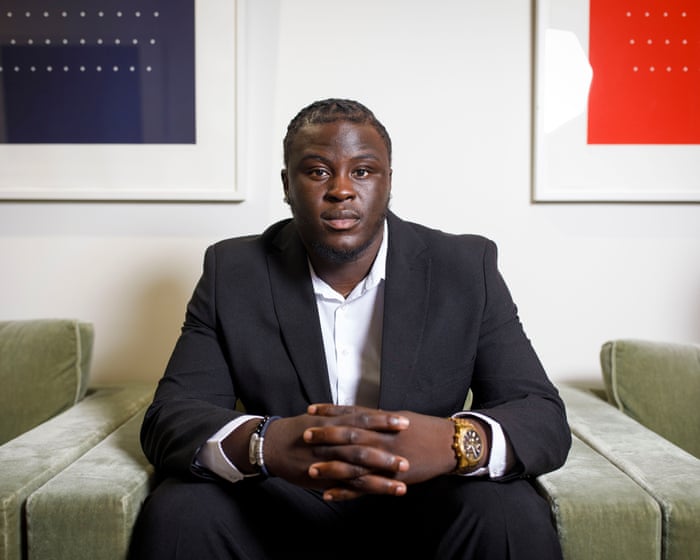Research shared with the Guardian shows that appeals against convictions involving music lyrics have more than tripled since drill music gained popularity in the UK in recent years. Lawyers, academics, artists, and individuals convicted in trials where rap and drill lyrics were used as evidence are increasingly concerned that stereotyping is influencing these prosecutions.
They are part of the Art Not Evidence campaign, which advocates for limits on using creative expression as evidence in criminal trials. The campaign argues that rap music, in particular, should not be used to unfairly link people to crimes unless it is directly connected to an alleged offense. Campaigners also call for independent expert witnesses on this music genre in court, rather than relying on police officers involved in the prosecution, and for safeguards against stereotyping.
Dr. Abenaa Owusu-Bempah, a law professor at the London School of Economics and an expert in this field, provided data to the Guardian on cases between 2005 and 2025 where rap and drill lyrics were used as evidence. From 2005 to 2018, there were 20 such cases, but from 2019 to early 2025, there were 33—more than triple the annual rate. She noted that this is likely just “the tip of the iceberg,” as many cases involving these lyrics don’t reach the appeal stage, even if there has been a miscarriage of justice.
The crimes in these cases include murder, attempted murder, conspiracy to cause grievous bodily harm, and firearm possession. About half involve joint enterprise, and many relate to gang membership. In the data collected by Owusu-Bempah, where ethnicity was recorded, the defendants were overwhelmingly young black men in their teens or early twenties. While some appeals were successful, many were rejected.
At a recent event supported by Clifford Chance solicitors, speakers like Ademola Adedeji, one of the “Manchester 10,” called for legal reforms. Adedeji’s conviction was overturned in January after police misidentified him in a drill video, leading to 1,181 days in prison. He told the Guardian that, despite his joy at being cleared, he struggles to resume his life. At 17, he had a university place to study law, but his conviction derailed his plans, making it difficult to get back on track.
Ty’rone Haughton, a poet at the event, argued that stereotyping is central to these prosecutions. He pointed out that rap, like other art forms, is a means of expression and questioned why prosecutors focus on rap lyrics but not on other genres or even politicians’ words. He emphasized that rap isn’t a “criminal morse code” but a way for people to express themselves.
Owusu-Bempah added that in most appeal cases she reviewed, music was treated as an aggravating factor in sentencing. The surge in cases coincided with drill music’s rise in popularity around 2018 and 2019, though she clarified that drill music itself is not inherently criminal.The Crown Prosecution Service has announced that, following a review, it will begin a consultation in the coming weeks to develop new guidance on the use of drill or rap music as evidence in court. They clarified that such evidence is only considered when it is directly relevant and significant to a case.
Frequently Asked Questions
Of course Here is a list of FAQs about the movement in the UK to limit the use of rap lyrics as evidence in criminal trials designed with clear questions and direct answers
Basic Definition Questions
1 What is this movement about
This movement is a push by lawyers artists and activists to change how courts use rap lyrics as evidence They argue that using artistic lyrics to prove guilt is often unfair and misleading
2 Why are rap lyrics being used as evidence in the first place
Prosecutors sometimes present violent or aggressive lyrics as a form of confession or to show a defendants character mindset or affiliation with a gang suggesting the lyrics describe reallife intentions or actions
3 Isnt a confession in a song still a confession
Not necessarily Rap is a genre rooted in storytelling exaggeration and artistic persona Artists often create fictional characters and narratives much like actors in a movie which are not literal accounts of their own lives
Problems Arguments Against the Practice
4 Whats the main problem with using lyrics as evidence
The main problem is that it can be highly prejudicial A jury might be swayed by shocking or aggressive language and assume the artist is a dangerous person without any concrete proof that the lyrics describe real events
5 Does this practice unfairly target certain groups
Yes critics argue it disproportionately targets young Black men and artists from urban communities reinforcing racial biases within the criminal justice system
6 Couldnt lyrics just be used as one piece of evidence among many
While this seems reasonable the concern is that the inflammatory nature of lyrics can overwhelm other more reliable evidence It can make a case seem stronger than it actually is and poison the jurys impartiality
Examples Scenarios
7 Can you give me a realworld example
In a highprofile case the rapper Tyler The Creator was banned from entering the UK for several years because the Home Office cited his lyrics as evidence of fostering hatred This is an administrative example of the same principle applied in a travel context
8 What if the lyrics are very specific to the crime
The movement doesnt argue for a total ban in every scenario If lyrics contain unique nonpublic details that only the perpetrator could know they might be relevant The push is against using generic violent



